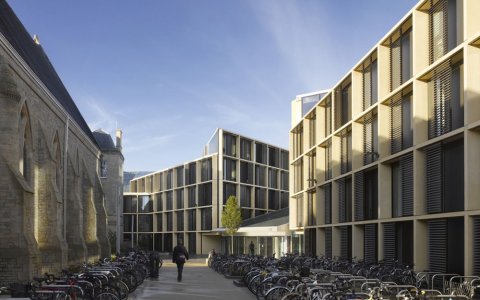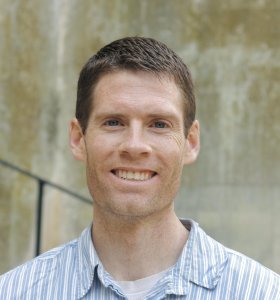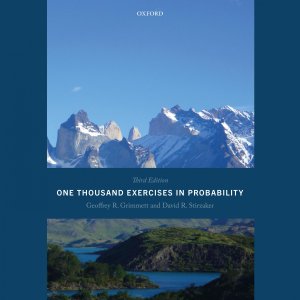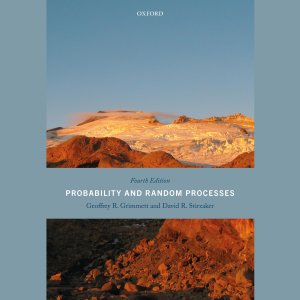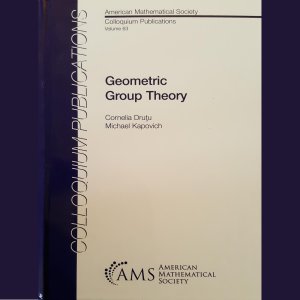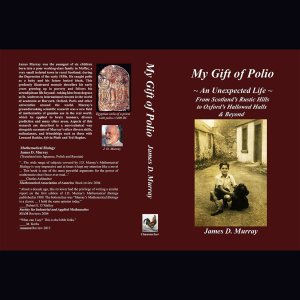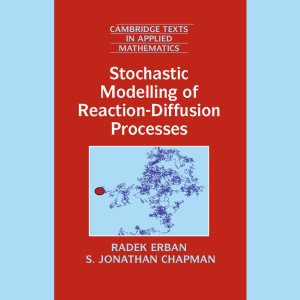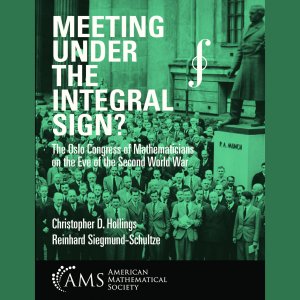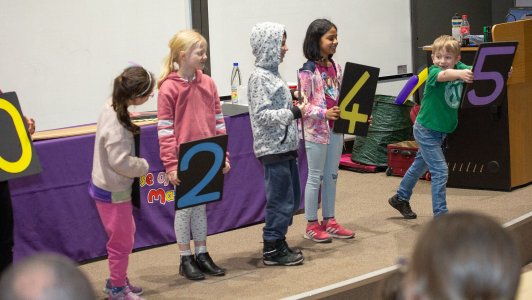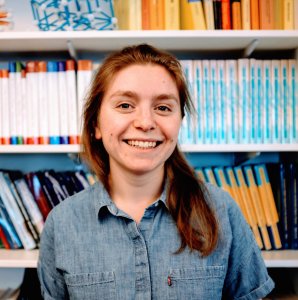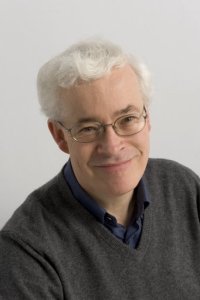Oxford Mathematicians occasionally have time to write and edit books. Their range of topics - from Topology and Geometry to Stochastic Methods and Chaos via the International Congress of 1936 and a candid account of a life escaping from poverty and living with polio - is a testament to how much maths reaches in to our lives. Some are for specialists, some for aspiring specialists, but all give you a flavour of the mathematical life.
Here are some of the those works that have already been published or will appear soon. The Oxford Mathematician (and their individual page) is highlighted in blue along with relevant links to the book itself.
Stochastic Modelling of Reaction-Diffusion Processes - Radek Erban, S. Jonathan Chapman
Stochastic methods have been used by researchers in Oxford Mathematics to model a number of biological systems, ranging in size from molecular dynamics simulations of small biomolecules to stochastic modelling of groups of animals.
This book can be used both for self-study and as a supporting text for advanced undergraduate or beginning graduate-level courses in applied mathematics. It discusses the essence of mathematical methods which appear (under different names) in a number of interdisciplinary scientific fields bridging mathematics and computations with biology and chemistry (including mathematical biology, non-equilibrium statistical physics, computational chemistry, soft condensed matter, physical chemistry or biophysics).
Chaos - An Introduction for Applied Mathematicians - Andrew Fowler and Mark McGuinness
This is a textbook on chaos and nonlinear dynamics, written by applied mathematicians for applied mathematicians. It aims to tread a middle ground between the mathematician's rigour and the physicist’s pragmatism.
The Wonder Book of Geometry - David Acheson
David transports us into the world of geometry, a fundamental and ancient branch of mathematics and argues that geometry can provide the quickest route into the whole spirit of mathematics at its best, especially for the young.
Topology: A Very Short Introduction - Richard Earl
The twentieth century was the century of topology – or so said Jean Dieudonné. From a nascent, intuitively understood subject in the time of Riemann, topology would become a significant area of mathematics, influencing the foundations of mathematics, through to applications in physics and data science.
Meeting under the Integral Sign? The Oslo Congress of Mathematicians on the Eve of the Second World War - Christopher D. Hollings and Reinhard Siegmund-Schultze
This book examines the historically unique conditions under which the International Congress of Mathematicians took place in Oslo in 1936. This Congress was the only one on this level to be held during the period of the Nazi regime in Germany (1933–1945) and after the wave of emigrations from it. Relying heavily on unpublished archival sources, the authors consider the different goals of the various participants in the Congress, most notably those of the Norwegian organisers, and the Nazi-led German delegation. They also investigate the reasons for the absence of the proposed Soviet and Italian delegations.
My Gift of Polio ~ An unexpected Life ~ From Scotland’s Rustic Hills to Oxford’s Hallowed Halls & Beyond - James D Murray
James Murray was the youngest of six children born into a poor working-class family in Moffat, a very small isolated town in rural Scotland, during the Depression of the early 1930s. He caught polio as a baby and his future looked bleak. This profusely illustrated memoir describes his early years growing up in poverty and follows his serendipitous life beyond - taking him from degrees at the University of St. Andrews to international renown in the world of academia at Harvard, Oxford, Paris and other universities around the world.
Conformal Maps and Geometry – Dmitry Belyaev
Geometric function theory is one of the most interesting parts of complex analysis, an area that has become increasingly relevant as a key feature in the theory of Schramm–Loewner evolution. Though Riemann mapping theorem is frequently explored, there are few texts that discuss general theory of univalent maps, conformal invariants, and Loewner evolution. This textbook provides an accessible foundation of the theory of conformal maps and their connections with geometry.
Leading Within Digital Worlds: Strategic Management for Data Science - Peter Grindrod
With rapidly evolving emerging technologies, the business world is entering a phase of reform. Within times of change, transformative and disruptive environments as well as uncertain futures have created a difficult landscape for leaders within business. This book is written for business leaders who want to remain at the forefront of the business world in these times of technological and digital evolution.
Lectures and Surveys on G2-Manifolds and Related Topics - Spiro Karigiannis, Naichung Conan Leung and Jason Lotay (Eds.)
This book, one of the first on G2 manifolds in decades, collects introductory lectures and survey articles largely based on talks given at a workshop held at the Fields Institute in August 2017, as part of the major thematic program on geometric analysis. It provides an accessible introduction to various aspects of the geometry of G2 manifolds, including the construction of examples, as well as the intimate relations with calibrated geometry, Yang-Mills gauge theory, and geometric flows. It also features the inclusion of a survey on the new topological and analytic invariants of G2 manifolds that have been recently discovered.
Geometric Group Theory – Cornelia Drutu and Misha Kapovich
The book contains proofs of several fundamental results of geometric group theory, such as Gromov's theorem on groups of polynomial growth, Tits's alternative, Stallings's theorem on ends of groups, Dunwoody's accessibility theorem, the Mostow Rigidity Theorem, and quasiisometric rigidity theorems of Tukia and Schwartz. This is the first book in which geometric group theory is presented in a form accessible to advanced graduate students and young research mathematicians.
Probability and Random Processes, 4th edition, & One Thousand Exercises in Probability, 3rd edition - Geoffrey Grimmett and David Stirzaker
Probability and Random Processes:
This book provides an extensive introduction to probability and random processes. It is intended for those working in the many and varied applications of the subject as well as for those studying more theoretical aspects.
One Thousand Exercises in Probability:
This volume contains more than 1300 exercises in probability and random processes together with their solutions. The new edition extends the previous edition by the inclusion of numerous new exercises, and several new sections devoted to further topics in aspects of stochastic processes. Since many exercises have multiple parts, the total number of interrogatives exceeds 3000.


